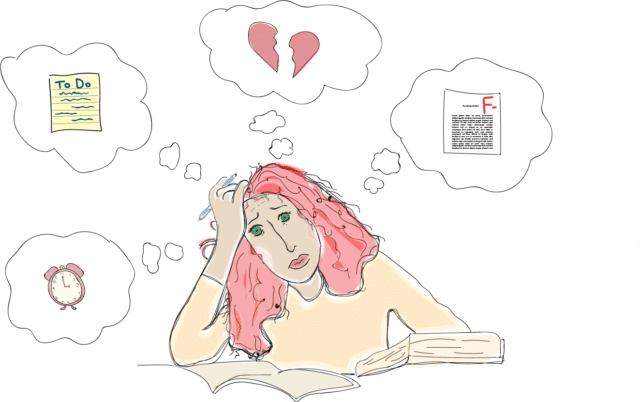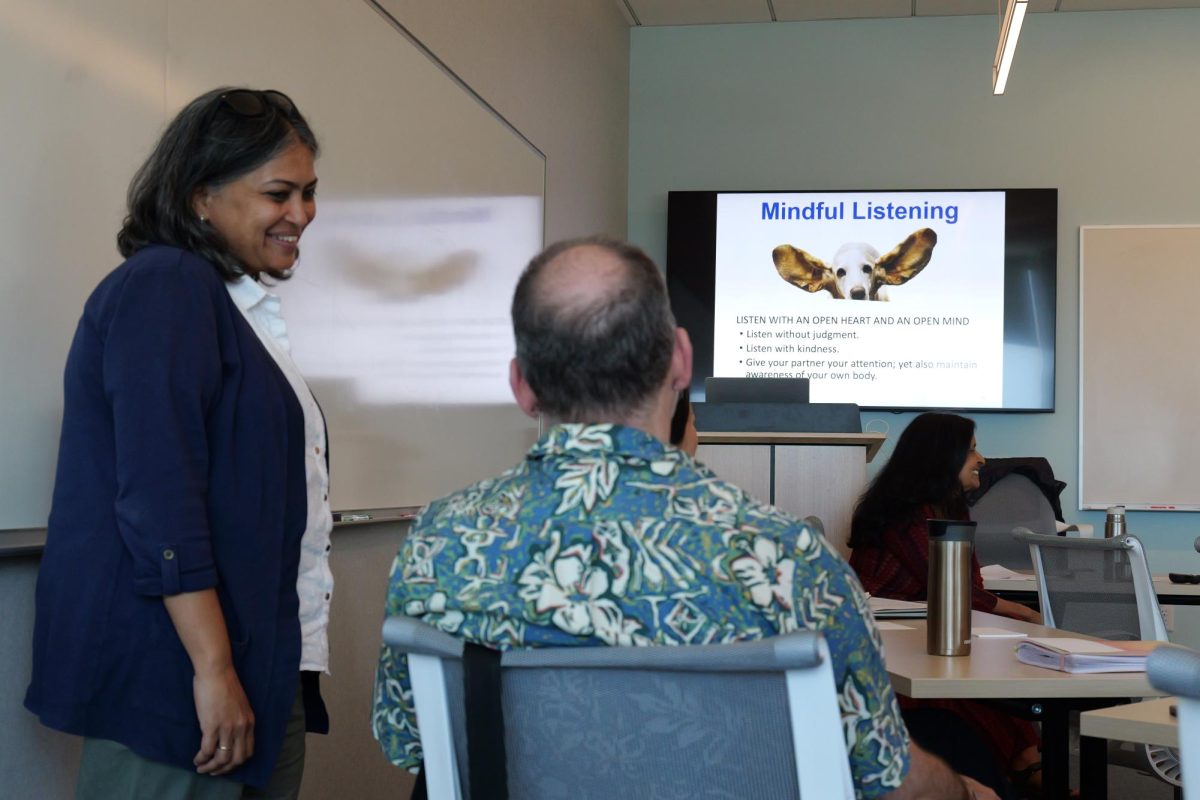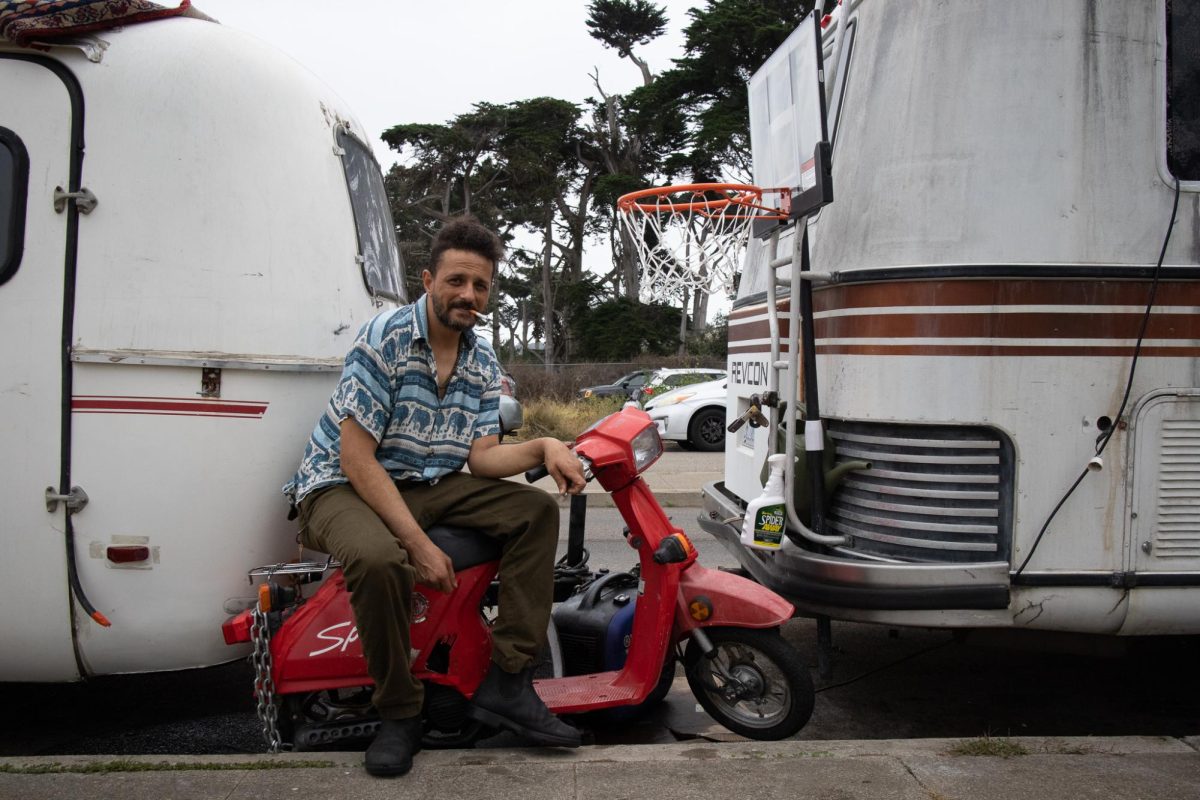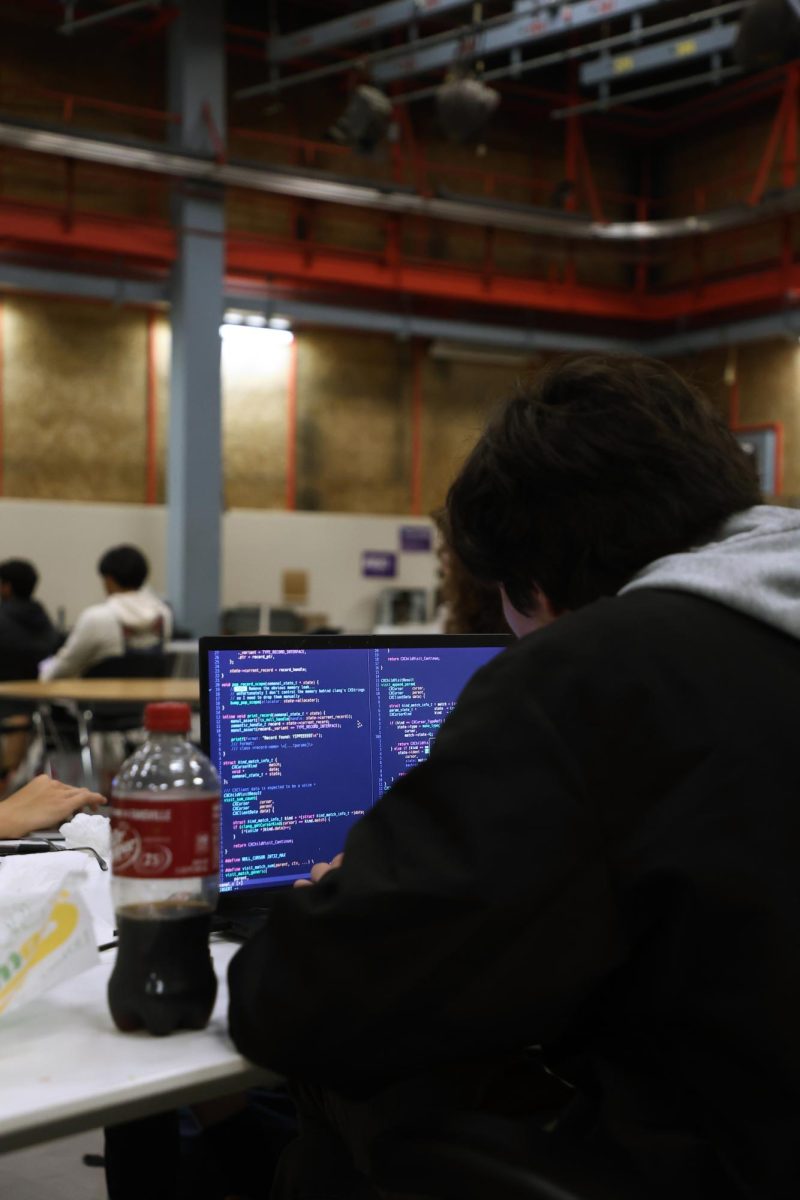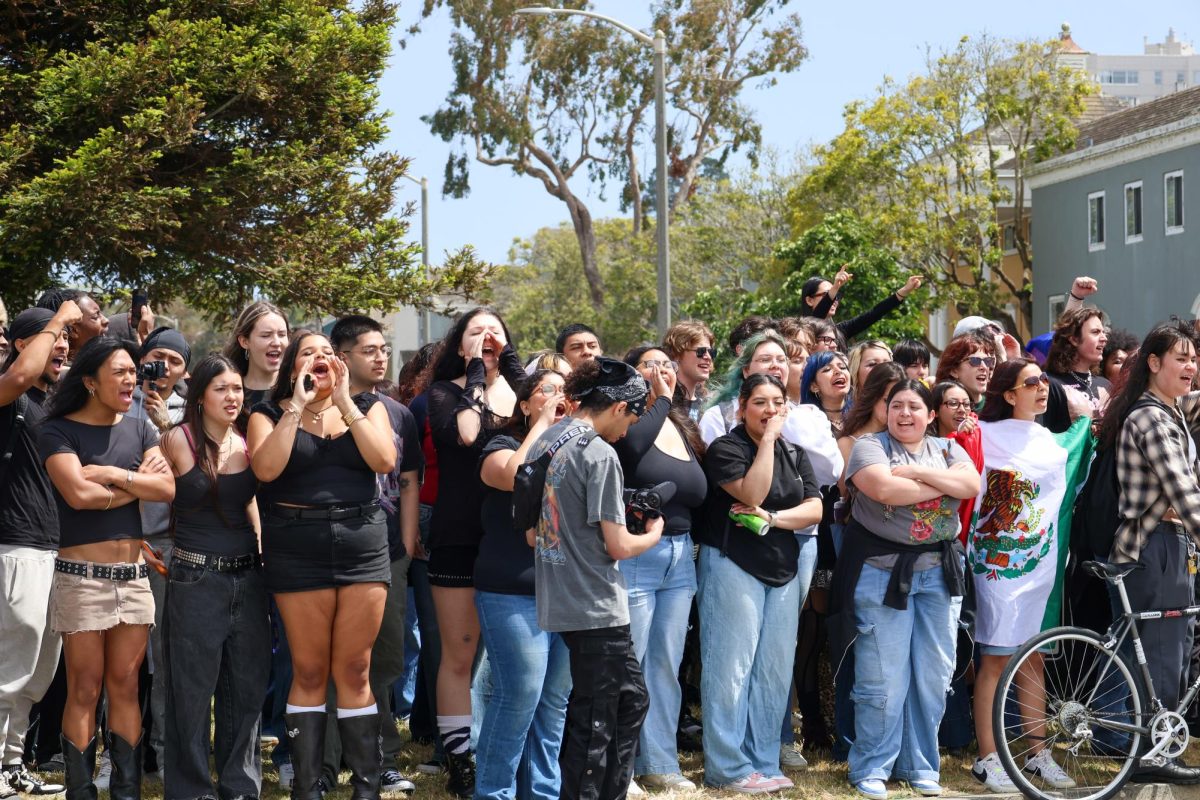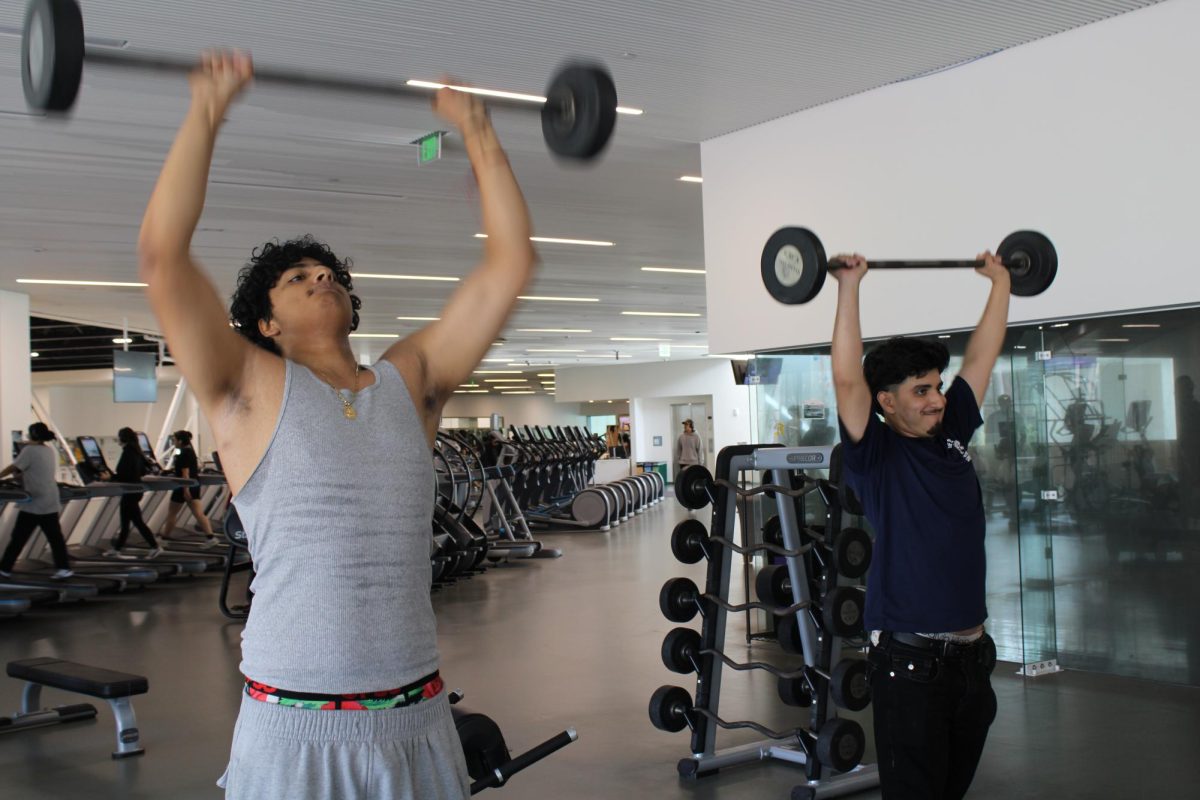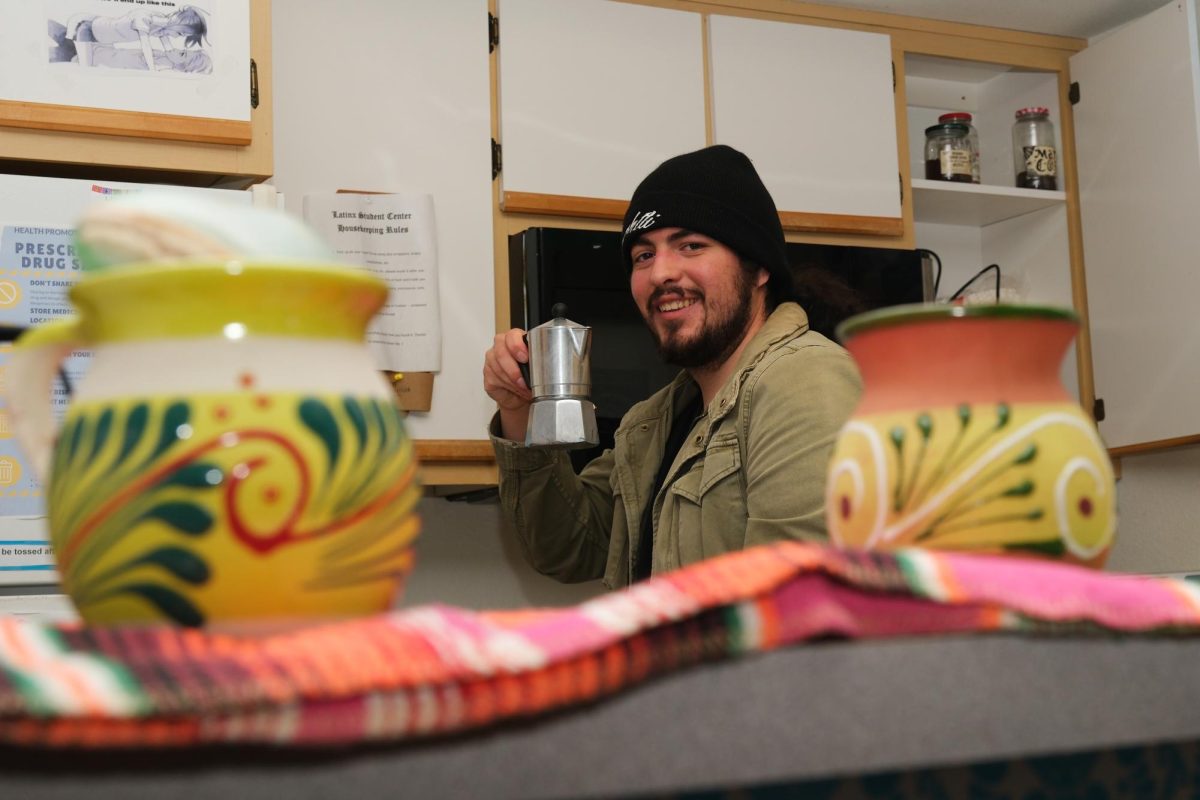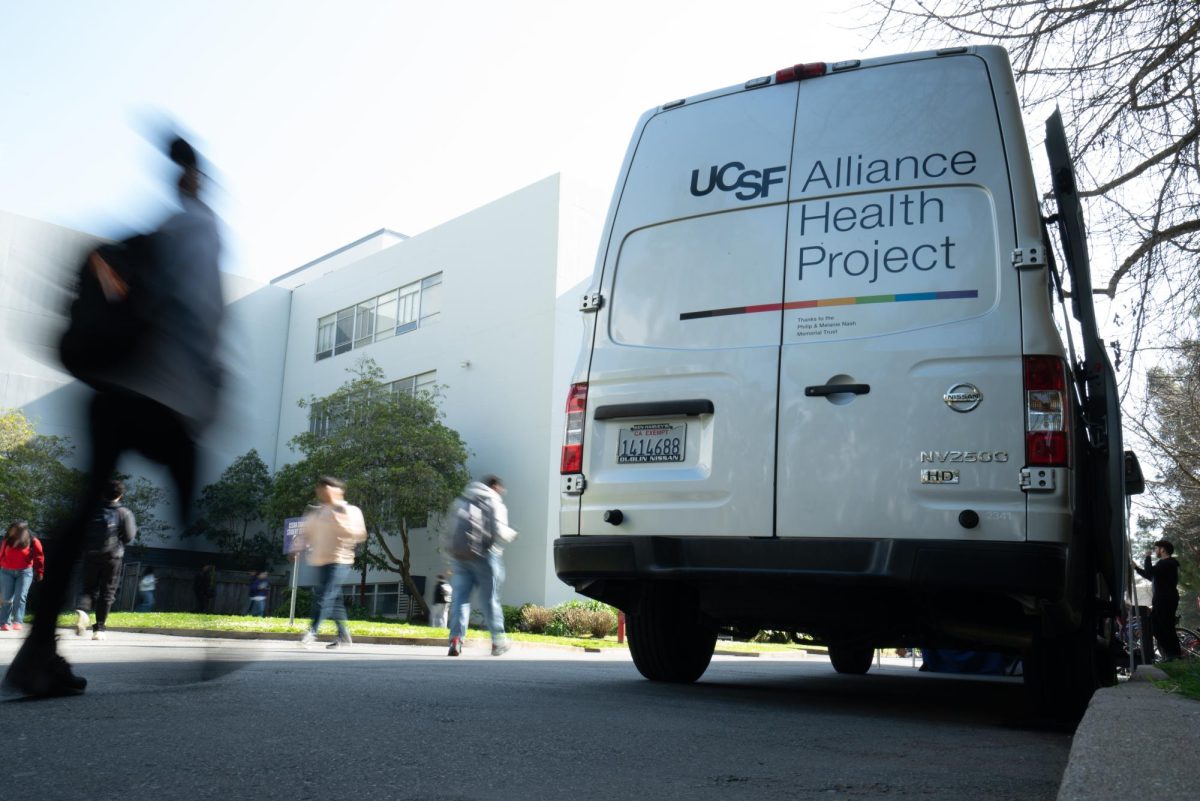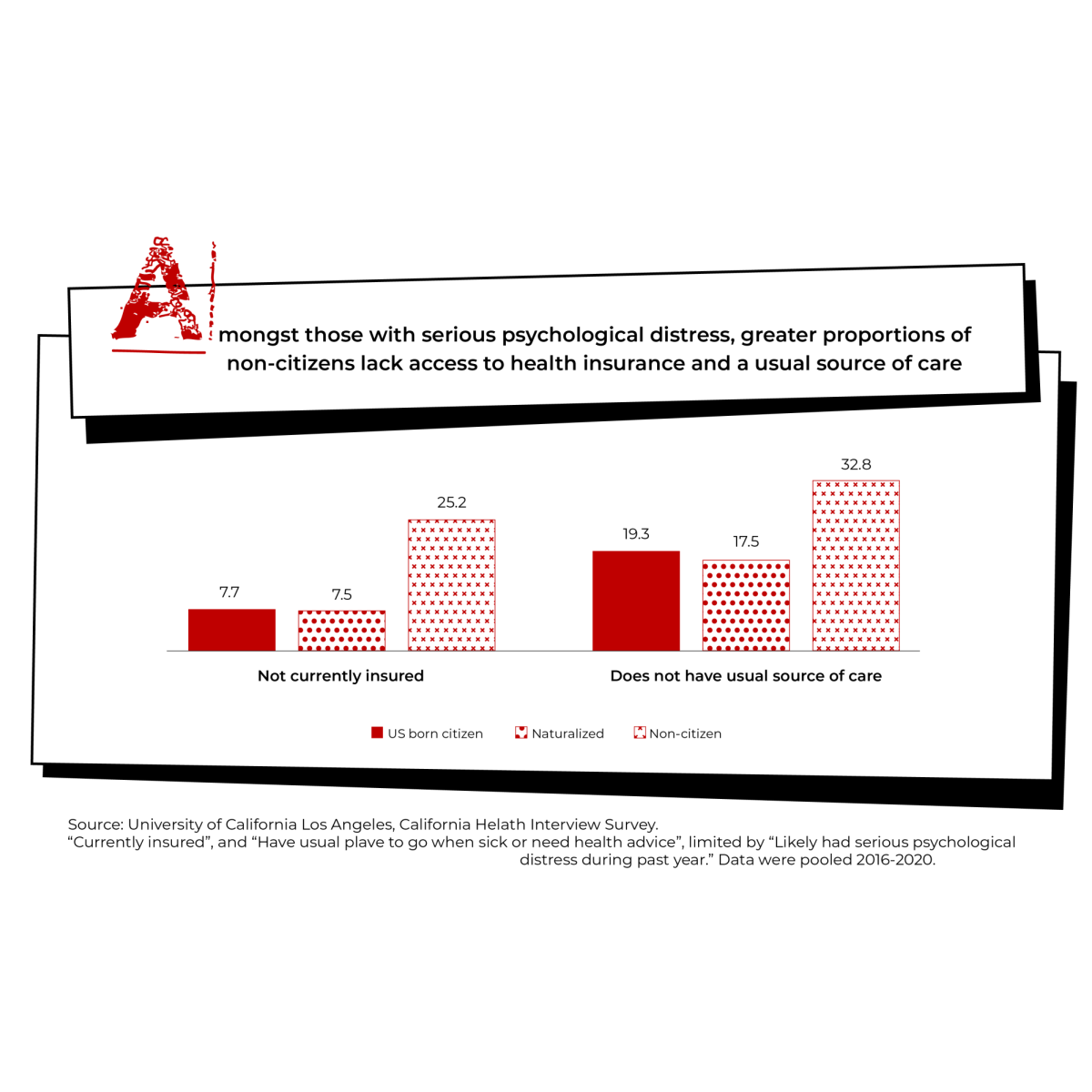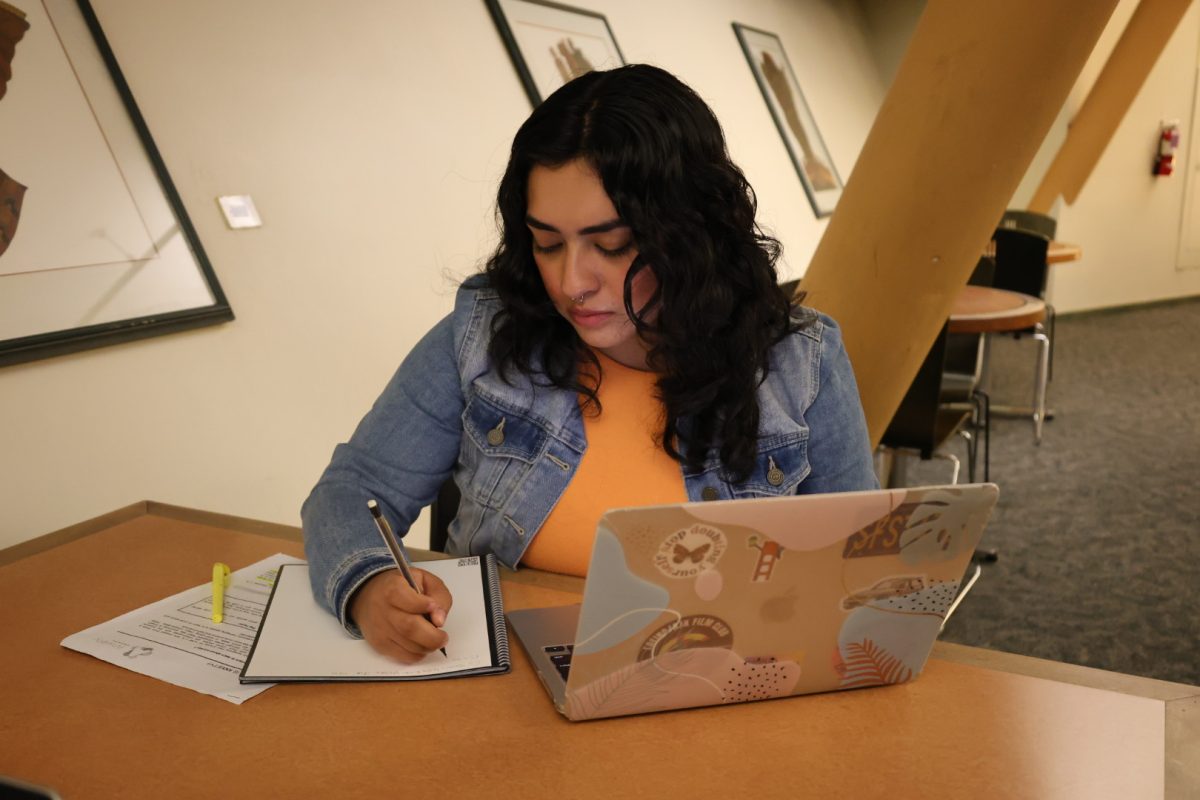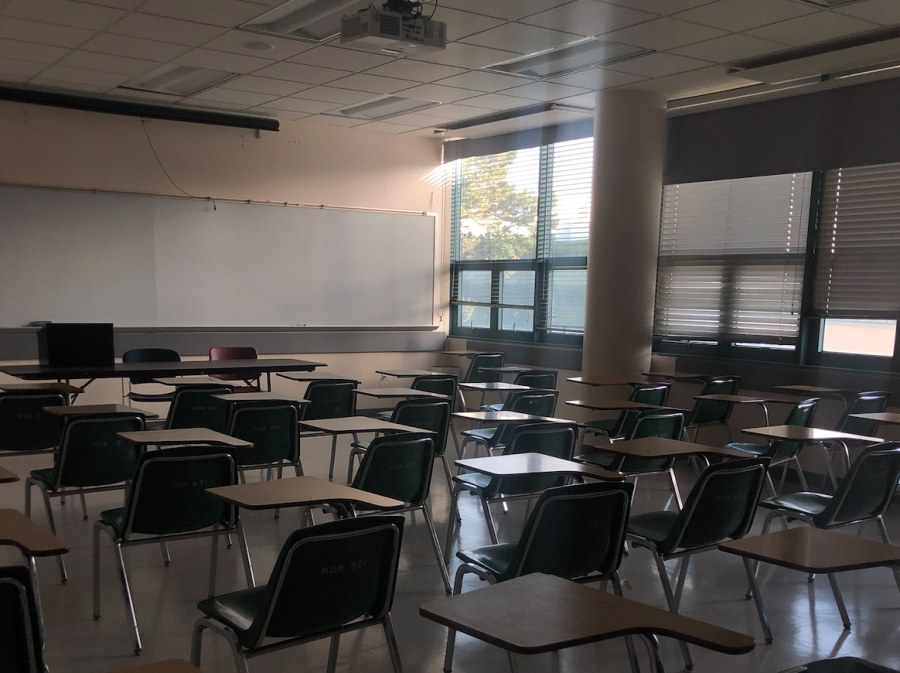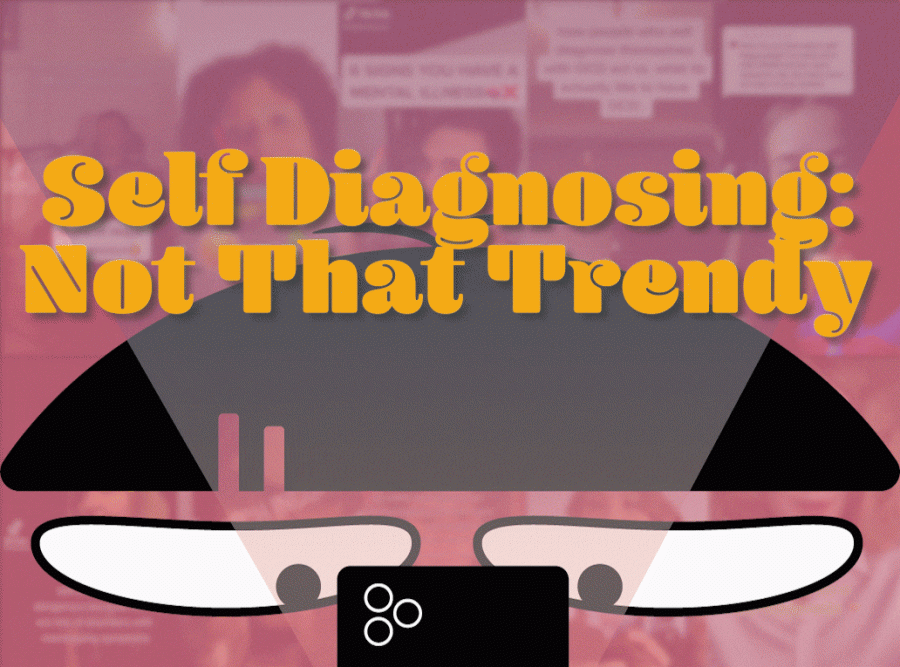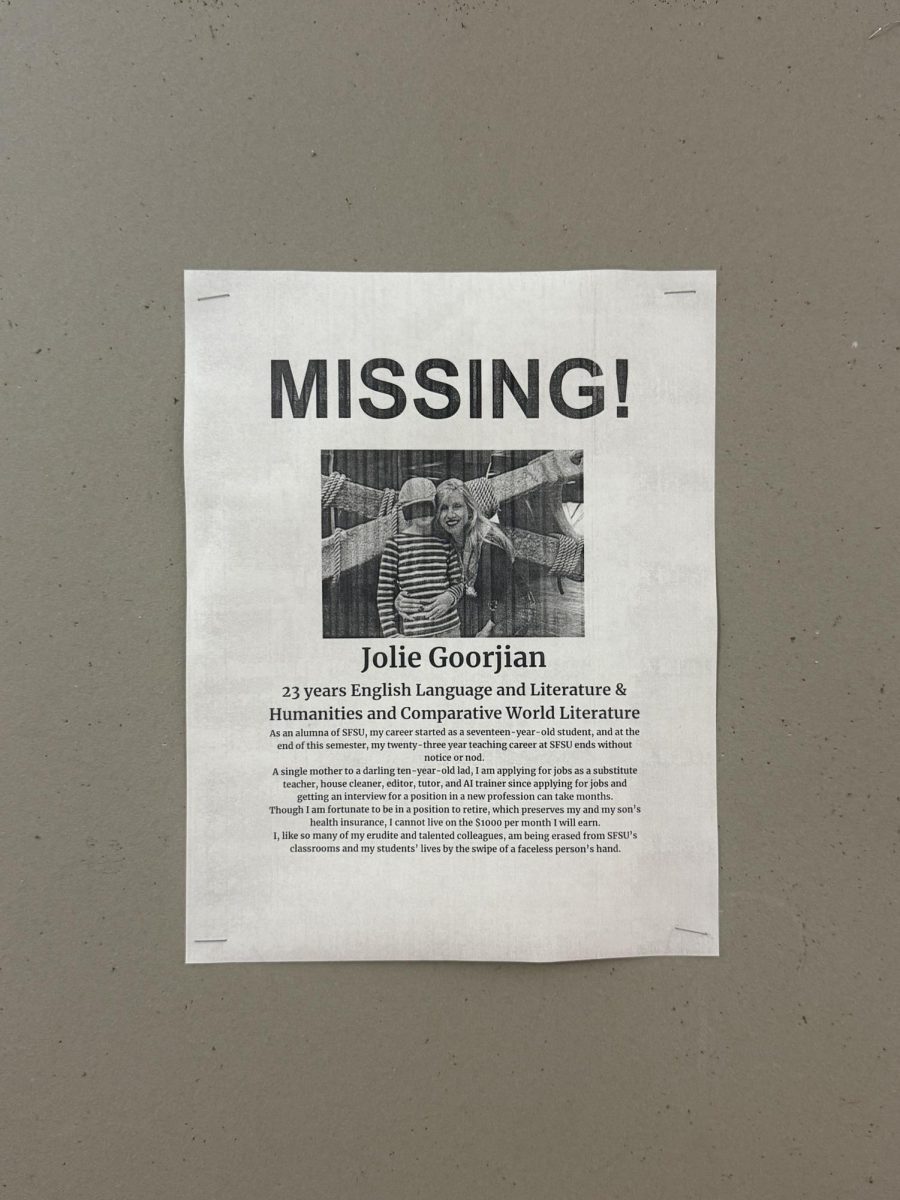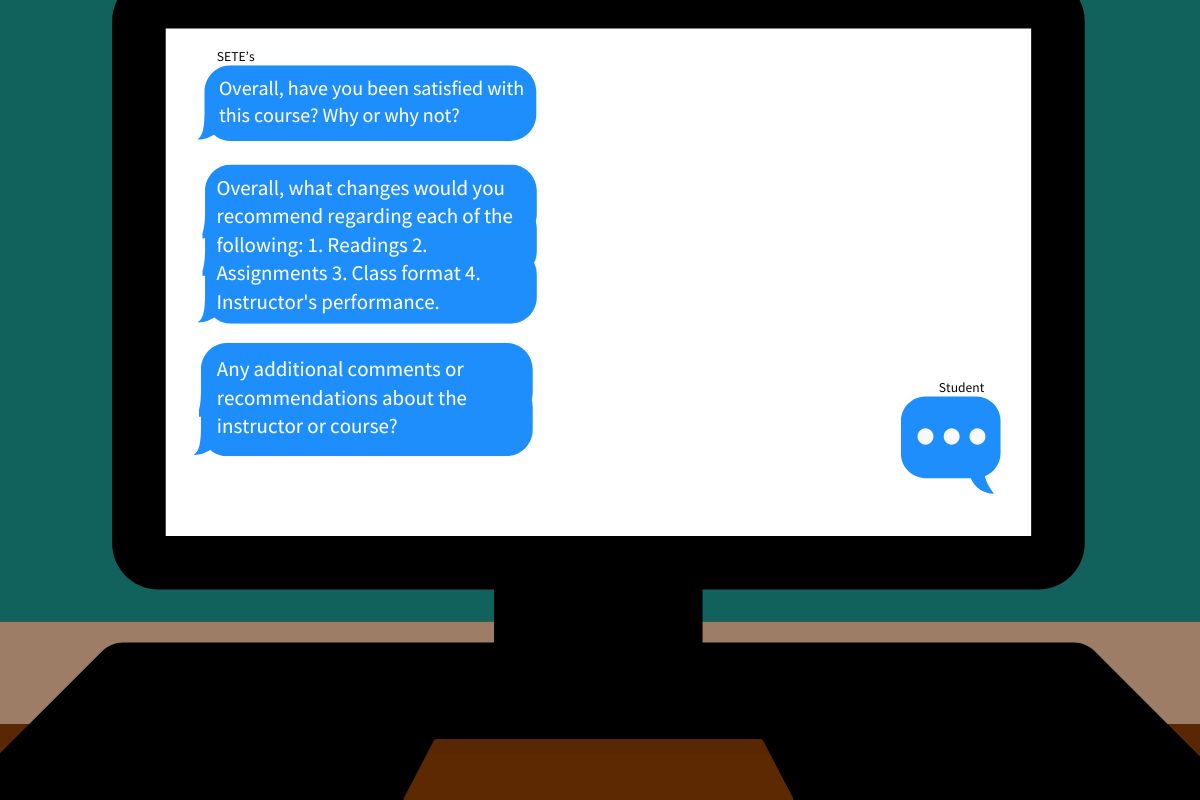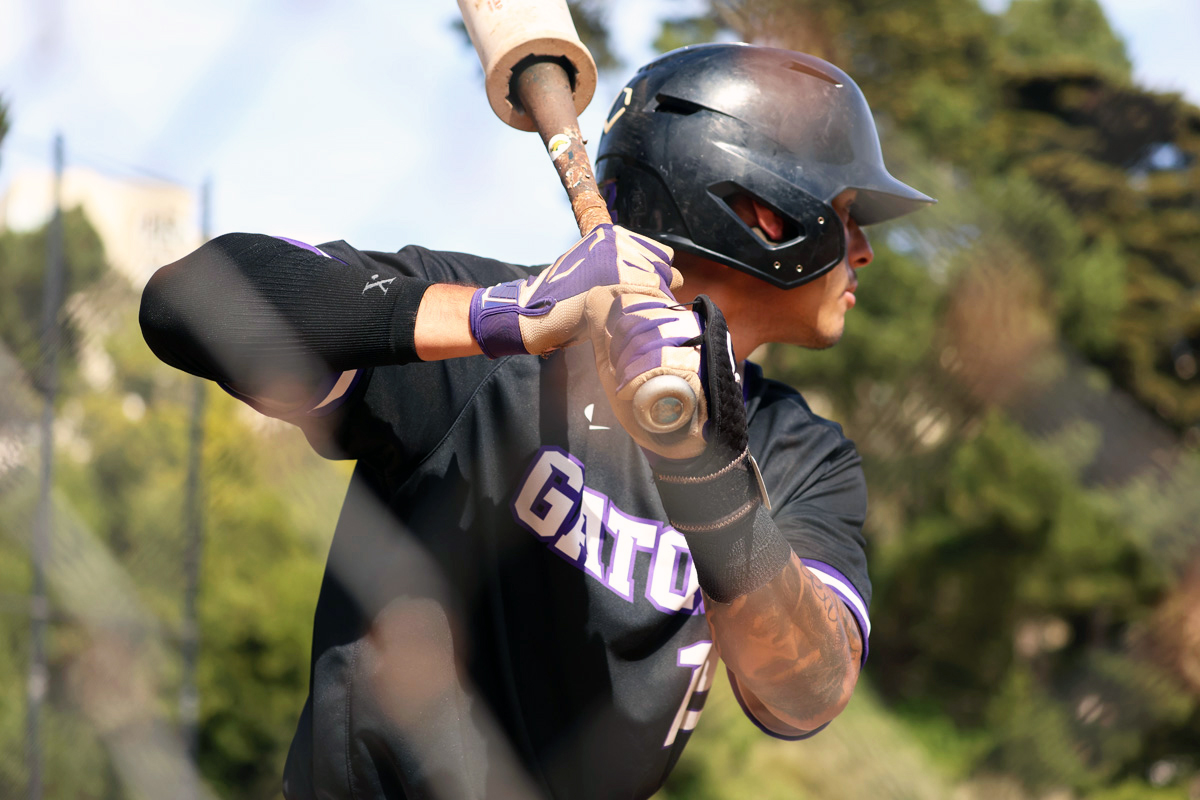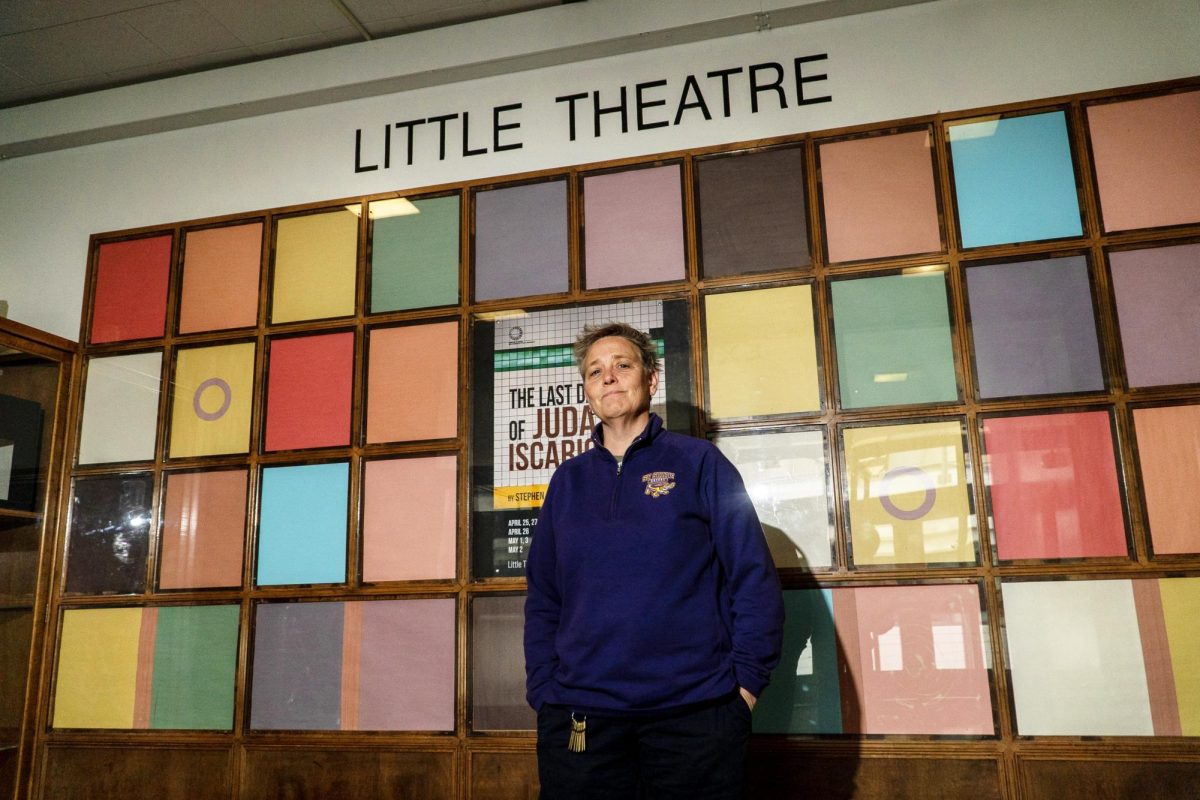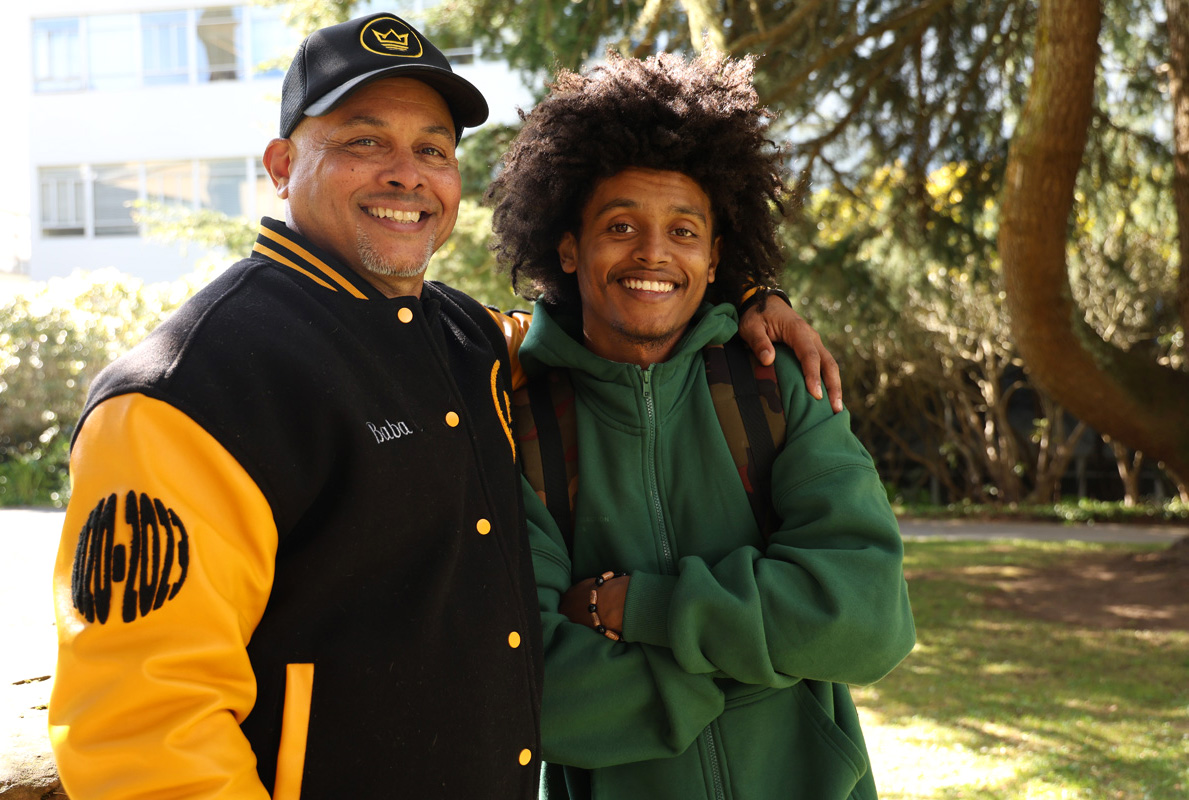To walk into room 354 in Burk Hall is to walk into an oasis of tranquility. Snacks and drinks are perched next to the door for students who might have missed breakfast. Desks are arranged in a circle so everyone is seen. An ambient light shines in the corner of the room and white orchids in a tall vase sit on a table.
Posters hung around the room read “How You Feel About Yourself?” Students who walk in on the first day of class take a survey with questions asking about their self-esteem levels, eating habits and others such as “what is your self-image?” Students sign confidentiality agreements promising not to reveal the personal information shared in room 354.
As college students, it’s easy to drown in the stresses of academic demands, social life and work issues. For some students at San Francisco State University, it’s their first time moving away from home and for others it’s the first time they’ve lived alone.
Emotional, mental and physical self-care is not learned in a classroom, and has often gotten lost in translation at universities. It’s effortless for students to slip into isolation.
According to the American Foundation for Suicide Prevention’s published study in 2018, the second most common cause of death among college students is suicide. The Violence and Suicide Prevention Initiative (VSPI) reflects a tragedy that continues to haunt college campuses without end. The course is an introduction to self-help conducted as a research project by SFSU adjunct professor Cherie Safapou, who holds a Ph.D. in Clinical Psychology.
“This is not therapy, this class is basically self-care. Based on my work history as a clinician I learned people don’t have the tools to help themselves.” Safapou, said. “We are moving away from traditional classrooms.”
The data showed an urgent cry for help from the student population. According to the Centers for Disease Control and Prevention, in 2017 suicide was the second highest cause of death in people ages 18 to 30 in the U.S.
The class started enrolling students that same year, when her wellness retreat organization Wise Wishes partnered with SFSU and began conducting the VSPI as a three-unit semester workshop.
She developed the three-phase course with Daniel Jahangard, a gym owner in Santa Cruz who conducts the nutrition and fitness portion for the first half of class. He implements fitness skills that will guide students in the social intimidation of gym environments that seem daunting for first timers.
The demands of academic life can distract students from taking care of their physical health. While it’s important to be physically healthy, fitness courses tend to be costly, especially for students. Stress and anxiety can plunge students into unhealthy routines.
“We want to create positive change to help these individuals know the value of exercise, to feel comfortable participating in it now that they know how to do it,” said Jahangard. “We try to give as many resources to help them move more.”
Participation is mandatory to receive full credit. The class can’t be found on SF State’s Gateway site during class registration, so students mostly hear about the course from word of mouth. As semesters start, Safapou can be found on campus handing out fliers inviting students to participate.
“I created this class with marginalized groups in mind,” said Safapou, who identifies as Persian-American.
VSPI is a one of a kind course veering away from traditional classroom settings. Most students from different socio-economic backgrounds and marginalized groups can’t afford to see a therapist once a week.
Various acts of violence have targeted alienated communities. Recent shootings such as the Christ Church massacre of Muslims, the attack on a Jewish temple in Poway, California and most recently the murder of 22 people in El Paso, Texas, all targeted marginalized communities.
In 2017, 58.1% of hate crimes in the U.S. were based on race/ethnicity, 22% were religiously motivated and 15.9% of attacks were based on sexual orientation, according to the U.S. Department of Justice.
Computer science major Carlos Hernandez encountered Safapou on campus when he was struggling to carry his many text books in the fall of 2018.
“We talk about violence against women and against certain groups. And it gives you a little bit of understanding of what could rise, or what would be some of the reasons for violence in our communities or in our families,” Hernandez. “That would kind of help in a general level, especially with all the changes that are happening at the moment.”
A portion of the course is dedicated to heritage. Students learn to embrace not only themselves but as well as their ethnic backgrounds. The class changes every semester to accommodate students’ needs as expressed in the surveys. Moreover, it being the third time Hernandez has taken the class it has also helped him maintain his GPA.
“I saw that we were actually learning a lot about the community, about ourselves and how to be better students and better people and just motivate each other,” said Hernandez, who will graduate next May.
The added bump to a student’s GPA is a motivating factor for why some join the class. This is the third year of research; students can take the course for a maximum of three times and still receive academic credit.
Amanda, whose name has been changed to protect her privacy, is taking the class a second time. The first time was by accident, when her adviser informed her of the course for added units. However, the stress of a relationship, school, work and financial aid contributed to her anxieties. Soon after, she sought help outside of school.
“Self-care is really important because who else is going to take care of you but yourself when you’re having a crappy day,” she said
There are three phases in the course. The first phase is focused on self-esteem and emotional development, the second teaches anger management skills and the third phase targets ways to build and maintain healthy relationships. Through each phase, students take the same questionnaire to evaluate themselves. From levels of self-esteem to eating habits, questions about emotional stability are asked.
After rating herself the lowest denominator on the questionnaire the first time she took the course, Amanda hopes to improve it this second go around. Speaking to older generations proved helpful for her in those dark moments. Sometimes it’s easier to tell strangers our problems than someone known.
“Things do get better,” she said, now in her final semester at SFSU. “I feel better than I was feeling last fall.”
Some students struggle to find a balance on the tightrope of school and work. The lack of familial support when moving away from home adds to the isolation.
Brittany Dominguez, 20, a second time student of the course, originally from Orange County, found the class after an undergraduate adviser suggested she needed the extra units to be a full-time student. Dominguez had never tried meditation until Safapou introduced the practice in every class.
“At first it was a little awkward because it’s a self-care class and we did hit some heavy topics,” said Dominguez. “But it did give us different options and different ways to cope with things or deal with things going on in our lives.”
As the semester moves forward, Safapou hopes to create an official textbook for the course and its practices as a training guide for people joining civil service to promote empathy in the world. Ideally, she envisions the course will be taught starting in primary school to give children the foundation to help themselves.
The program is in need of funding to continue its research and better the lives of students who otherwise wouldn’t know how to go about dealing with life’s emotional and physical stresses. For now, there is a space in Burk Hall room 354 that accepts everyone who walks through the door with a story to tell.
“Never doubt that a small group of thoughtful committed citizens can change the world,” said Safapou. “Indeed it’s the only thing that ever has, as long as we stay wild at heart.”
Disclaimer: The course is not meant to treat or diagnose students. If you are in need of help SFSU provides counseling and psychological services.
Referral Services for help outside of campus are provided for students.
If you or someone you know needs help the SAFE Place specializes in intervention services for past and present victims.
The SAFE Place office is located in the Student Services Building in room 205 or you can call 415-338-2208 Monday – Thursday 8 a.m.- 5 p.m and Fridays 8 a.m.-4:45 p.m.
For 24 hour resources, the National Suicide Prevention Lifeline is 1-800-273-8255 as well as online chat.
San Francisco Women Against Rape provides a 24 hour hotline service: 415-647-7273.
University Police Department can be directly contacted at (415) 338-2222.
Check out some of Safapou’s other research here: Research Project on Children in Family Court


